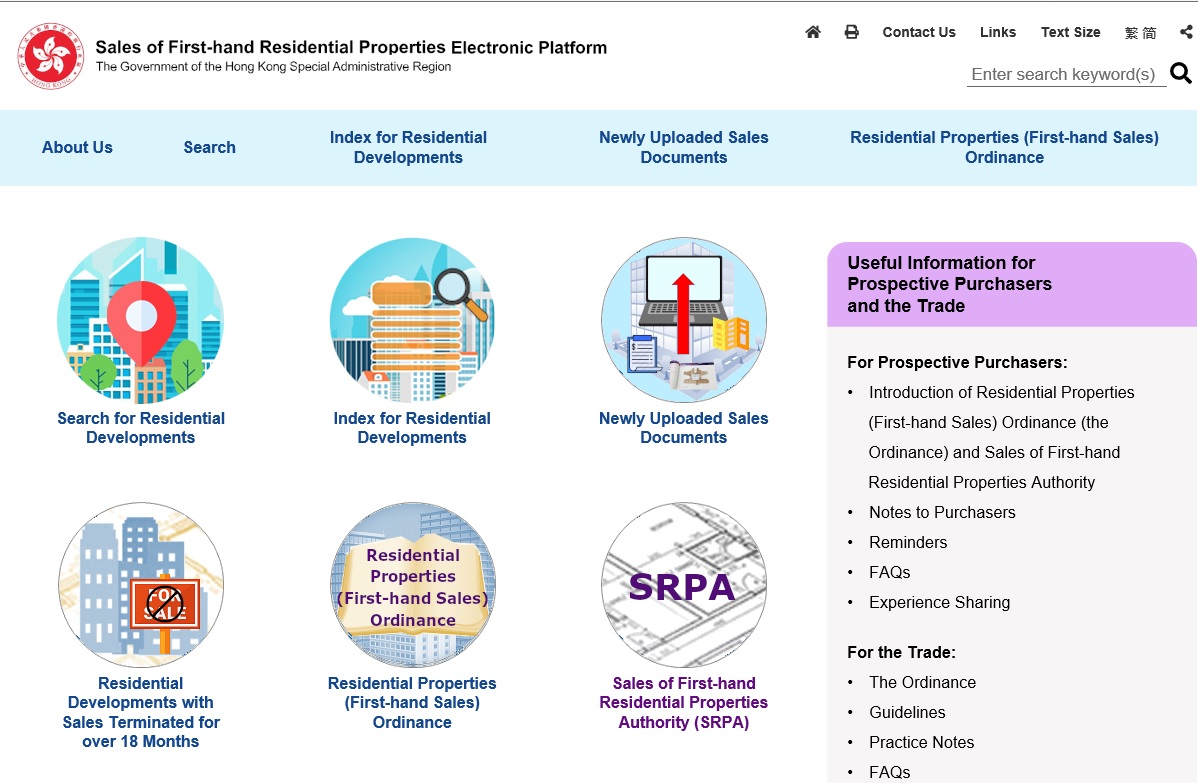Experience Sharing

Ms A passed by the sales office of a first-hand residential development, and visited the show flats. She then selected a residential property in the development on impulse, and signed the Preliminary Agreement for Sale and Purchase (PASP) in respect of the residential property.
Ms A regretted her decision and did not sign the Agreement for Sale and Purchase (ASP). As a result, the preliminary deposit which was equivalent to 5% of the purchase price of the residential property and amounted to several ten thousand dollars, was forfeited by the vendor.
Advice from the SRPA:
- Home purchase is a significant decision. It involves a huge sum of money and may involve mortgage loan arrangements. Don’t enter into a PASP on impulse.
- If you do not sign the ASP within five working days after signing the PASP, you’ll forfeit your preliminary deposit which is equivalent to 5% of the purchase price of the residential property.
Mr B, having considered his financial affordability, intended to buy a first-hand residential property in a development at a price of $6 million or below. He was balloted for flat selection. By the time when it was his turn to select the flat, only those residential properties which were priced far above $6 million were available for selection.
Mr B cherished the chance of being balloted. The hectic atmosphere in the sales office was having an effect on him. Also, Mr B believed in the words of the estate agent that he could secure a second mortgage loan from a financial institution referred by the estate agent, the total loan amount of the first and the second mortgage would be equivalent to 90% of the price of the residential property, and he could become a home owner at an initial capital of a few ten thousand dollars. On this basis, Mr B selected a flat at a price which was beyond his financial affordability and signed the PASP in respect of that residential property.
Subsequently, Mr B could not secure a sufficient amount of mortgage loan. He did not sign the ASP. As a result, the preliminary deposit, which was equivalent to 5% of the purchase price and amounted to several ten thousand dollars, was forfeited by the vendor.
Advice from the SRPA:
- The tense and hectic atmosphere in a sales office may make it difficult for a person to remain calm when making a decision. In all circumstances, purchasers should remain calm. Also, they should critically assess their affordability, be mindful of any minimum requirements on income and asset of different mortgage loan plans, and be mindful of any administrative fees which they may have to pay. Don’t rush into signing a PASP.
- If you do not sign the ASP within five working days after signing the PASP, you’ll forfeit your preliminary deposit which is equivalent to 5% of the purchase price of the residential property.

The SRPA launched an API to remind prospective purchasers to study, check and think carefully before signing a PASP. Also, the SRPA published the “Notes to Purchasers of First-hand Residential Properties”, a comic book “Everything you need to know when purchasing a first-hand residential property” and other publications to draw the attention of prospective purchasers on matters they should be aware of when purchasing a first-hand residential property
Take a third party’s undertaking with caution
Mr and Mrs C would like to purchase a first-hand residential property in a development. The estate agent told them that he would offer a cash rebate out of his commission to them if they bought the residential property through him.
Mr and Mrs C trusted the estate agent and did not require the estate agent to set out his undertaking on cash rebate in writing. They purchased the residential property through the estate agent.
The estate agent did not honour his promise. As a result, Mr and Mrs C did not receive the cash rebate from that estate agent.
Advice from the SRPA:
- Vendors are required to set out in a price list the discount, gift, financial advantage or benefit that they would provide in connection with the purchase of a property. Prospective purchasers should take a careful look at the information in the price list.
- Take any undertaking (including any gifts or cash rebate) by a third party other than the vendor with caution. To avoid dispute, ask the third party concerned to put in writing details of his undertaking. Without any documentary proof, it is difficult to prove that the third party has made any undertaking or has not kept his promise.
- The act of an estate agent offering benefits (including gifts or cash rebate) to his clients falls outside the ambit of the Ordinance.

The Sales of First-hand Residential Properties Electronic Platform at www.srpe.gov.hk provides prospective purchasers an access to the updated sales brochures and price lists.
Pay Attention to Register of Transactions and Consumption Table
Be a Smart Purchaser
Mr A planned to buy a flat in a new development in the urban area. He asked an estate agent on the sales condition of that development. The estate agent told him that the flats in that development offered to be sold earlier were sold out quickly and there were quite a number of purchasers buying the flats in batches. Mr A fully believed in what he had heard from the estate agent and considered that it was an opportunity too good to be missed. He borrowed money from his friends and relatives and submitted two registrations of intent. This cost him $300,000. The estate agent informed him that he was successful in the balloting and could proceed to flat selection. Mr A wanted to buy a flat on the upper floors. He asked the estate agent on the date of sale but was told that only flats on the lower floors were available for selection. He eventually bought a lower-floor flat. Later, Mr A noted from the newspapers that many preliminary agreements for sale and purchase (PASPs) of that development signed earlier had not been proceeded further. Also, he learnt that on the date he bought his flat, there were flats on upper floors available for selection. He was too keen to buy a flat and had not seriously considered all facts before buying the lower-floor flat. He regretted that he had not checked the register of transactions of that development before submitting the registration of intent and had not asked the vendor on information of the flats offered for sale before entering into the PASP, but only believed in rumours of market sales condition and rushed to buy a flat.
Advice from the SRPA:
According to the Residential Properties (First-hand Sales) Ordinance, a vendor must make the register of transactions for the development available at the sales office and the designated website for the development during the sales period. The register of transactions must set out relevant transaction information such as date of PASP, date of signing agreement for sale and purchase (ASP), transaction price, terms of payment and whether the purchaser is or is not a related party to the vendor. The vendor must, within 24 hours after entering into a PASP with a purchaser, enter transaction information of the PASP in the register of transactions. The vendor must, within 1 working day after entering into a ASP, enter transaction information of the ASP in the register of transactions. Before purchasing a property, a prospective purchaser should check the register of transactions for the concerned development to know more comprehensively and promptly the sales situation of the development throughout the whole sales period. Prospective purchasers should not take the number of registrations of intent a vendor has received as an indicator of the sales volume of a development. The register of transactions for a development is the most reliable source of information from which members of the public can grasp the daily sales condition of the development.
Prospective purchasers at a sales office should not believe in rumours about the sales condition of the development and rush to sign a PASP. Vendors are advised to display in a sales office a consumption table so that prospective purchasers could check which residential properties are still available for selection.
Finally, the SRPA reminds prospective purchasers that flat buying is not a light issue. It involves huge investment and may also need mortgage arrangements. When purchasing first-hand residential properties, prospective purchasers should stay calm; and should not be affected by the tense and hectic atmosphere in a sales office and sign a PASP on impulse.